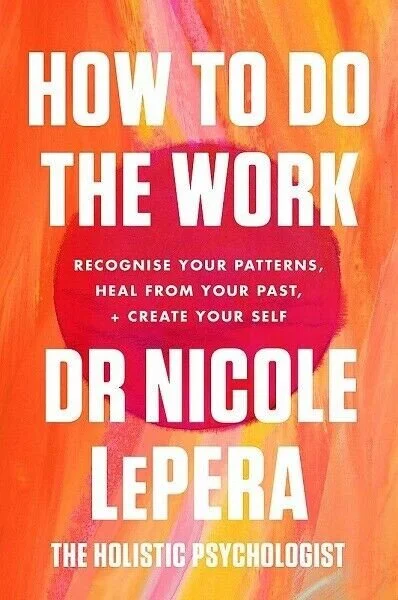My Thoughts On Nicole LePera’s Book: How to Do The Work - Recognize Your Patterns, Heal From Your Past And Create Your Self
Hi, I'm Liz Moser, a Mayo Clinic and National Board Certified Health and Wellness Coach.
This week I read the book How to Do The Work: Recognize Your Patterns, Heal from your past and Recreate Yourself by Dr. Nicole LePera. It is the kind of book that I will be rereading and referring back to often. It’s chock full of helpful information, exercises, and suggestions, and I'm still processing the data to see how it will fit into my daily routine and what I will suggest my clients add to their lives. That said, this blog is a short synopsis, including some of the book’s highlights from my initial reading.
The author, Nicole LePera, is a clinical psychologist with a private practice. LePera calls herself a holistic psychologist. She defines holistic psychology as a practical healing philosophy that considers and addresses all parts of the person (mind, body, and soul), encourages the exploration of causes of symptoms rather than suppressing them, and acknowledges the interconnection of the universe.
She writes about the importance of consuming whole, unprocessed foods. Specifically, how different foods foster the growth of specific gut microorganisms and how certain gut flora have been linked to anxiety, ADHD, and even depression. More psychologists need to discuss with their patients the research supporting the direct correlation between the food we put in our mouths and our emotional moods and psychological diagnoses.
LePera writes about the importance of performing activities that increase our vagal tone, such as yoga, breathwork, and singing. Vagal tone is the ability of our nervous system to shift between sympathetic and parasympathetic activation in response to daily stress. Poor vagal tone results in misdirected responses and high sensitivity to perceived threats in our environment. This over activates the body’s responses and leads to reduced emotional and attentional regulation overall.
She is a clinical psychiatrist, and much of her work and the book is about healing past trauma and childhood wounds in effect re-parenting ourselves. A crucial piece of her recommended daily work is a journaling process called future-self journaling or FSJ practice.
Future-self journaling is a daily practice where you witness patterns of thoughts, feelings, and behaviors keeping you stuck. Then write down what you notice and what you can change. Finally, pick one area and start small, thereby not setting ourselves up for overwhelm.
Find a time when you are peaceful and calm, either morning or evening. Pick what’s best for you. Commit to 5-8 minutes per day and be patient. Changing long-standing patterns takes time. Stick with it.
You can sign up on her website www.yourholisticpsychologist.com to receive info about this journaling exercise, including her specific five daily journaling prompts. Those prompts are:
Prompt #1: Today, I am practicing - After witnessing your habitual thoughts and feelings keeping you stuck, pick one area you will begin to work on to create change. This comes up a lot for my clients. Please check out my vlog from last week.
Prompt #2: I am grateful for - Identifying and focusing on what you are thankful for helps you to acknowledge what already exists and helps positively shift your energy. This is so important to maintain motivation.
Prompt #3: Today, I am…(new thought/affirmation) - Habitual thoughts keep you stuck. Note a new thought /affirmation that will be a helpful reminder to create your desired change. Affirmations are scientifically proven to change our brains. You can check out my vlog on affirmations.
Prompt #4: Change in this area allows me to feel…(new feeling): habitual thoughts lead to habitual feelings (or “emotional addictions”). Note how you would begin to feel (about yourself, others, the world, etc.) if you began to believe your new thought (above). Write in the present tense. Speak as if. Notice how our beliefs create our thoughts, create our feelings. Change your beliefs, then change your feelings.
Prompt #5: Today, I am practicing…(new behavior): To create change, you will need to begin to practice consistently. Note how and when you will be able to begin practicing your changes throughout your day. It all comes down to our actions. Despite my love of meditation, I know we don’t just stay in a lotus position and magically transform. Small steps, taken over time like drinking a glass of water every morning, taking a daily walk, making time to play with your children, or committing to your affirmation practice change our brains and lives.
I’m Liz Moser, a Mayo Clinic and National Board Certified Health and Wellness Coach, and thank you for reading this blog about Nicole LePera’s book, How To Do The Work. If you have any questions about this blog, about health and wellness, or wellness coaching with me, please reach out via my website at lizmosercoaching.com
Bye for now and be well,
Liz






